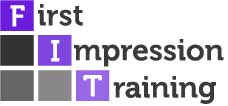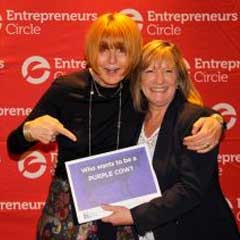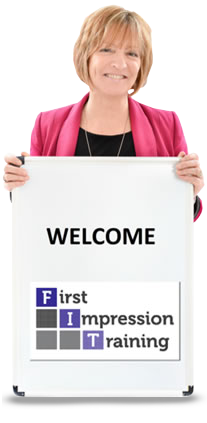Ok, I admit it – from time to time, I like to throw my weight around (there’s not much of me but I can pack a good punch when I’ve got something to shout about) and I guess this week’s mumblings may cause a similar stir to the eyebrows I raised a few weeks back, with my blog on women leading the way against the robot revolution. I talked about the importance (and value) of developing our EQ levels, in order to build better HUMAN relationships with those we are doing, or want to do, business with &/or indeed, work with. I pointed out a FACT that women are more emotionally intelligent than men, possessing greater quantities of empathy, insight, compassion and verbal expression.
I wasn’t being sexist. I’m not a feminist. I’m not gay. And I’m not against the male species. In fact,I live with and love 4 of them every day, in the guise of my kick-ass boss (who happens to be my husband too) and my 3 grown up sons, who funnily enough, are incredibly emotionally intelligent and ‘in touch with their feminine side’ – and no, they’re not gay either!
So I’m not dumbing-down men as the inferior species when it comes to building and maintaining meaningful business or personal relationships (I wasn’t then, and I’m not now) but I would like to challenge some of the oddities and mal-alignments that exist in our society today, when it comes to women’s ‘rightful place’ and purpose in the workplace (and indeed in general), given that our usefulness in particular sectors of industry, (such as the service sector) is unquestionable when you read the proof around our ability to emotionally connect and develop profitable relationships with others, far more so than our male counterparts.
Last week I attended the annual National Counselling & Psychotherapy Conference in London with my lovely (female) friend and co-director of Teen Therapy Kent (my NLP4Teens therapy practice www.teentherapykent.co.uk) where we work with children, young people and ‘chadults’ both privately and in the school setting, finding ways to build, repair &/or sustain their emotional health and well-being. It’s strange, because Susie and I have never referred to the work we do as being in the ‘mental health’ space and nor have we ever referred to any of our clients, whatever their age, as having ‘mental health issues’ or being ‘mentally ill’. Yet tradition, our education system, the medical profession, society in general would label them exactly that.
We listened to and learned from a number of incredibly inspirational speakers at the conference. My two personal favourites (who were both men, by the way) were Professor Peter Kinderman, Professor of Clinical Psychology at University of Liverpool and Dr Chris Irons, Director & Clinical Psychologist at Balanced Minds. I was particularly intrigued with some of the research and resulting stats and facts surrounding ‘mental health’ that Peter spoke about, not least the shock of hearing that women are TWICE as likely to be prescribed anti-depressant drugs, when displaying exactly the same ‘symptoms’ of depression as men. Why is that? Do GPs just assume that women are generally the weaker sex and therefore need external stimulants to make them stronger &/or are women more likely to develop depression because (not in spite) of the fact they’re in touch with their emotions far more regularly and more deeply than men, so they’re more easily able to express how they feel? It suggested to me that having a higher EQ level and possessing those greater quantities of emotion than men, meant being emotionally intelligent is actually a bit of a double-edged sword. Oddity no. 1 right there!
He went on to talk about the word ‘health’ vs ‘mental health’ and, given that women are more able to verbally express their feelings and emotions over men’s ability to let the world know how they’re feeling, the research was quite startling. When asked to write down every word we associate the word HEALTH with, everyone – without exception, connected words that were positive and emotive and full of description, yet when asked to do the same exercise with the words ‘MENTAL HEALTH’ everyone – again without exception, connected words that were totally negative, but with very little description, as if it wasn’t necessary to expand on their meaning (despair, darkness, dread, drudgery are all quite self-explanatory, right?) Another oddity, given that women are supposed to be so verbally expressive in all scenarios of business and life!
Then there was Dr Chris Irons on stage (woah! he’s a handsome young man) talking about Compassion Focused Therapy (CFT) & Mindfulness and the important part they play in the workplace, in the classroom and in the home – not just in the therapy room. He unveiled some fascinating facts about the human brain (I know we know it’s a fascinating piece of kit, but his talk went waaaay beyond fascinating, I can assure you). He explained how our 3 emotional systems in the mind work and impact our emotional health and well-being – these being our Threat System; our Drive System and our Soothing System. I guess it doesn’t take an Einstein to work out which system is operating more frequently in the female brain and why Mindfulness is proven to work far more beneficially for women than for men. Indeed, Reuters Health reported in a recent study of college students undergoing meditation training, that women were more likely than men to report a significant improvement in their mood following the practice of meditation and mindfulness, while men perceived it to be too touchy-feely and ethereal, in some cases even lowering their mood – yet the benefits of meditation and mindfulness, for both physical and emotional well-being, extend to both sexes and are well documented. Indeed, Britton’s college study resulted in a new paper in Frontiers in Psychology showing a clear gender difference in outcomes of mood when practising Mindfulness &/or being on the receiving end of CFT. And you guess right I’m sure – as men don’t do compassion anywhere near as well as women do, they benefit far less from this form of emotional well-being therapy, proving once again, that as compassion is a critical ingredient in the recipe of a healthy mind, women ought to be far more ‘mentally well’ shouldn’t they? Yet another oddity when we consider that fact that women are TWICE as likely to be described anti-depressants than men!
Even more odd is that this was not always the case. The original ‘talking therapists’ were almost exclusively male physicians who generally didn’t know the first thing about what it was like to be a woman! Psychoanalysts like Freud, Jung and Adler to name a few, devised all kinds of psycho-social theories that ignored women. Some of these theories even blamed women for their psychological unhappiness! Thankfully, the profession has come a long way since that time and has surely been helped along by the expert work of these two great speakers I had the privilege to listen to and learn from last week.
Dr Irons talked about the meaning of compassion – he explained that compassion is a motive not an emotion, and that being compassionate (in a business situation or in our personal life) demanded self-loving, self-knowing, self-expression, self-compassion first & foremost, in order to be able to truly identify with another human, concluding that compassion and COURAGE are therefore intrinsic ingredients. By that I took it to mean that being in touch with oneself (you know boys, that fluffy stuff we girls do all the time by expressing our feelings and admitting our weaknesses and flaws) is far easier to do for women than for men, and yet – men are definitely seen (or at least perceived) to be more COURAGEOUS than women. Yet more mal-alignment of what being Emotionally Intelligent is all about!
Which brings me (just briefly) to the topic of the gender pay gap…. the pay gap between men and women working in London has barely changed in over two decades, even though in 1997 the capital had the narrowest gender pay gap, there has been little improvement since then. Other regions in the UK have seen more movement towards pay equality over time. Women working full-time in London earn 15.1% less per hour, on average, than their male counterparts 20 years ago. This has only narrowed slightly in 2017, to 14.6% in favour of men. London is now the region with the biggest pay gap, on average, between male and female full-time workers in the UK. The analysis also demonstrates striking changes in the gender pay gap when it comes to where you work, the hours you work, and also whether you work in the public or private sector.
In the last two decades, consecutive governments have sought to address the gender pay gap using legislation. One of the most recent is legislation requiring all companies with more than 250 employees to publish the gender pay gap among their staff. There are still clear regional differences in earnings between men and women working full-time. In Northern Ireland, women earn 3.4% more per hour, on average than their male counterparts – the only region in the UK where the pay gap has been in favour of women, and this has been the case since 2010 yaaaay!
I mention the gender pay gap in this post, not to be controversial, but to bring up once again the perceptions, in terms of value, we women bring to the workplace. I read a fascinating article in Grazia magazine in the lead up to International Women’s Day a few weeks back, by Columnist of the Year, Polly Vernon. In her article, Polly talks about the (ridiculous, in her opinion) perception that the general public have of women and money, particularly those considered to be successful, entrepreneurial, or at the top of their game. She cites Liz Truss, Chief Secretary to the Treasury who says that “women should be less squeamish about making money and less inclined to see its acquisition as vulgar”. Polly goes on to say that women in general, don’t demand dosh as shamelessly, loudly and repeatedly as men, and she believes this is one of the reasons the gender pay gap endures. She also talks about the irony of IWD approaching and being asked to do a load of work for FREE, out of the goodness of her feminine heart, in order to inspire young women and encourage us to give (yet) more of ourselves on this very special day, to prove our worth and place in society. WOW! How dare she be so arrogant as to place financial value on herself, when she tells them to f**k off and go find some other sucker who doesn’t hold themselves of value and of purpose in the world. Good on you girl!
And talking of girl power, this brings me nicely to my last mumbling….an absolute MUST READ (for both women AND men) is her new book Work Like a Woman by my female hero, Mary “Queen of Shops” Portas. Mary epitomises everything good and great about being a woman in business in the book and her candidness and humility will have you ALL doffing your caps at the ease by which she describes how to truly make it, without having to feel the need to ‘grow a pair.’ Having met her (and had my pic taken with her, as you can see!) AND having read the book (twice) I have to say, I’ve got a bit of a girl crush on her Mary, if you’re reading this, thank you – you’ve demonstrated the art of relationship-building (in business and in life) with such clarity and simplicity and proven, yet again in support of our mission, that it really ‘aint rocket science. As I said in my last post, all we have to do (whether we’re a man or a woman) is understand that the art of meaningful conversation, proper connection and emotional engagement with other human beings (in business or life) is super simple….
• Be present
• Be genuinely interested
• Prove you’re on GAS (Give A Sh*t)
• ..and ensure EVERYONE you communicate with FEELS good to have done so
It’s easy-peezy-lemon-squeezy – and we can all practice this stuff, however little compassion or courage we have and whatever our gender. So let’s be more emotionally intelligent guys (and girls!)
Until next time, keep FIT!


















